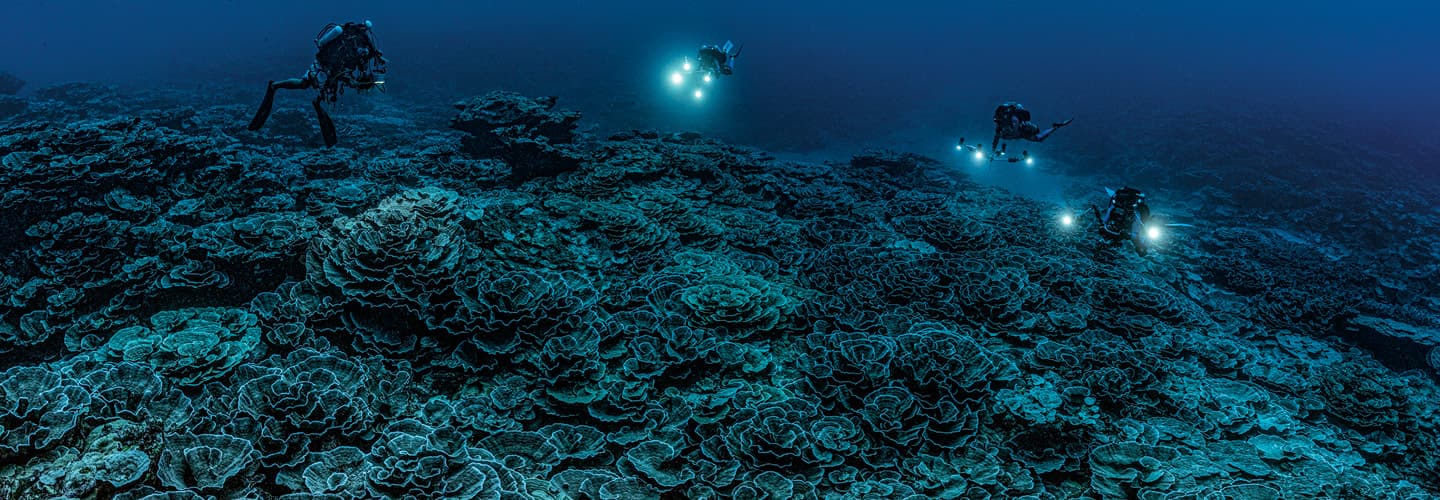Jim McMahon
Divers were amazed to recently discover nearly 2 miles of coral reef in pristine condition deep off the coast of Tahiti. Coral reefs are living organisms related to jellyfish and sea anemones. (You may find dead pieces, often with intricate patterns, washed up on the beach.) They’re essential for marine life, serving as a food source and habitat for many other organisms. Most of the world’s known reefs have been severely damaged by pollution and climate change, but this one appears to be healthy; a photographer on the diving team called it a “work of art.” That’s good news, as experts have predicted that 70 to 90 percent of living coral will disappear in the next 20 years, endangering many species. But this finding could offer clues on how to protect those ecosystems. The fact that this reef stayed hidden for so long just goes to show how little we’ve explored the sea, scientists say. Only about 20 percent of the ocean floor has been mapped. “There’s not enough on studying our own home and the ocean in particular,” Julian Barbière, head of marine policy at UNESCO, told CNN. “And I think this is really where we want to put our emphasis in the next 10 years—to create the knowledge we need to put the planet on the sustainable path through marine protected areas.”

